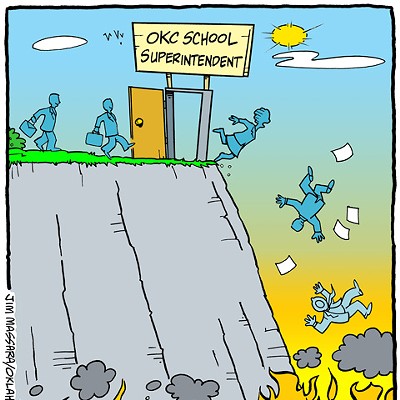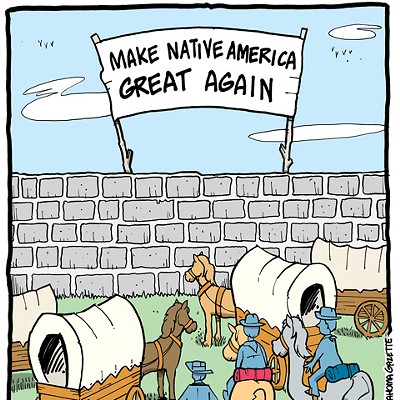When you say "James Inhofe," you get an opinion. The senior senator from Oklahoma invites controversy. He is the core conservative critic of the climate-change movement, an advocate for the recreational pilot and a staunch defender of national defense. He is also less than diplomatic in his opinions, vicious in his political campaigns and occasionally wrong with his facts.
And, he is up for re-election. But, what kind of re-election will Inhofe enjoy?
The scenario favored by Republicans is the one that Inhofe has twice enjoyed: an easy re-election against an underfinanced opponent who cannot compete for conservative votes. Democrats Jim Boren (1996) and David Walters (2002) were flawed candidates who made unimpressive showings against Inhofe. They couldn't hold up under the cutting nature of an Inhofe campaign. An uninspired, underfinanced candidate who has character flaws and suffers from an empty wallet allows Inhofe an easy re-election.
The second scenario is that Inhofe decides at the last minute not to run and clears the field for an ambitious Republican. This is the Tommy Franks scenario, for those who keep track of such things.
The third and fourth scenarios assume that Inhofe confronts a blistering re-election fight against a well-financed candidate. This is the circumstance Inhofe evidently anticipates. The latest Federal Election Commission filing shows the incumbent with $1.4 million in cash on hand. Conversations I have had with prospective opponents and also the campaign know-it-alls in Washington, D.C., indicate that Inhofe could raise $10 million to $15 million for a re-election campaign, and that an effort to defeat him would cost anywhere from $6 million to $10 million.
This high-cost campaign plays out one of two ways. In both instances, Inhofe confronts a well-financed, young state legislator. The opponent is able to tap into substantial out-of-state money and attempts to capitalize on Inhofe's (allegedly) diminished clout in a Democratic Senate, his positions on issues such as the environment, and his advancing age and occasional misspeaks on issues.
When senior senators lose, they lose because they get out of touch with the state, make mistakes in public and get caught napping by a young lion. Having a national political tide that runs against those senior senators usually also comes into play.
The odds favor Inhofe. He is a veteran legislator, a pretty capable debater, and he is unambiguous in his issue positions. However, he can make public mistakes.
Two young guns might make the race. One, Oklahoma City state Sen. Andrew Rice already has announced he is running, and another, state Sen. Kenneth Corn, D-Poteau, is rumored to be mulling the race by D.C. journalists such as Hastings Wyman and some Democratic National Committee-types. Each would make an attractive young candidate, although they present very different challenges to Inhofe.
Rice is married, urban, a theology student and has a sparse legislative record. He is also more liberal than most Oklahoma legislators, and confronts the reality that Oklahoma last elected a liberal to the U.S. Senate in the Sixties, when it sent Fred Harris to Washington.
Corn is single, rural, conservative, one of the most veteran lawmakers in the state at age 31 and has a record of policy making. He confronts the reality that Oklahoma hasn't elected a rural Democratic lawmaker to the U.S. Senate since the Sixties.
We'll keep you posted if a perfect storm develops.
Gaddie is a professor of political science at the University of Oklahoma.












